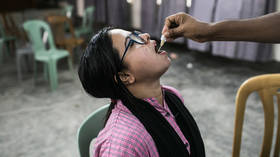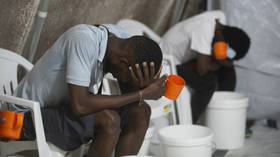WHO sounds alarm over cholera vaccines

The World Health Organization (WHO) has warned that global stockpiles of cholera vaccines are “empty or extremely low” as outbreaks of the disease increase and mortality rates rise.
“We have no more vaccines. More countries are continuing to request [them] and it’s extremely challenging,” Dr. Philippe Barboza, WHO team lead for cholera and epidemic diarrhoeal diseases, said in Geneva on Friday.
The UN health watchdog official described the situation as “quite unprecedented,” since not only are there more outbreaks, but “these outbreaks are larger and more deadly than the ones we have seen in past years.”
According to the WHO, there has been an increase in cholera cases globally since 2021, when 23 countries were affected. The trend has continued this year, with 29 countries reporting cases and outbreaks of the disease.
The WHO pointed out that, while cholera is preventable, a shortage of vaccines persists. It said that the sole producers, South Korea and India, were already at “maximum production” of 36 million shots per year. A South African manufacturer is planning to start production but the initiative will take “a few years” to materialize, Barboza said.
In October, the WHO announced it would temporarily suspend its standard two-dose vaccine regime against cholera in an effort to conserve supplies. The agency warned that “while using a single dose instead of two doses will allow more people to be protected in the short term, this strategy has its limitations, and it is unclear how long immunity will last.”
Cholera is an intestinal infection caused by ingestion of food or water contaminated with the bacterium Vibrio cholerae. The incubation period can last between two hours and five days. While most people have either no symptoms or only mild symptoms, just under 20% of infected people suffer from severe dehydration due to loss of fluids, which can lead to other complications and potentially death.
Compared to other illnesses, however, cholera “is easy to treat” but only if patients can quickly get intravenous fluids or antibiotics, the WHO says.
The disease is also “predictable and preventable,” according to the health watchdog. The provision of access to clean water and sanitation facilities, as well as ensuring good hygiene practices, can help to eliminate it.
Up to 143,000 people die worldwide from the disease annually, according to the WHO.













